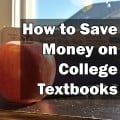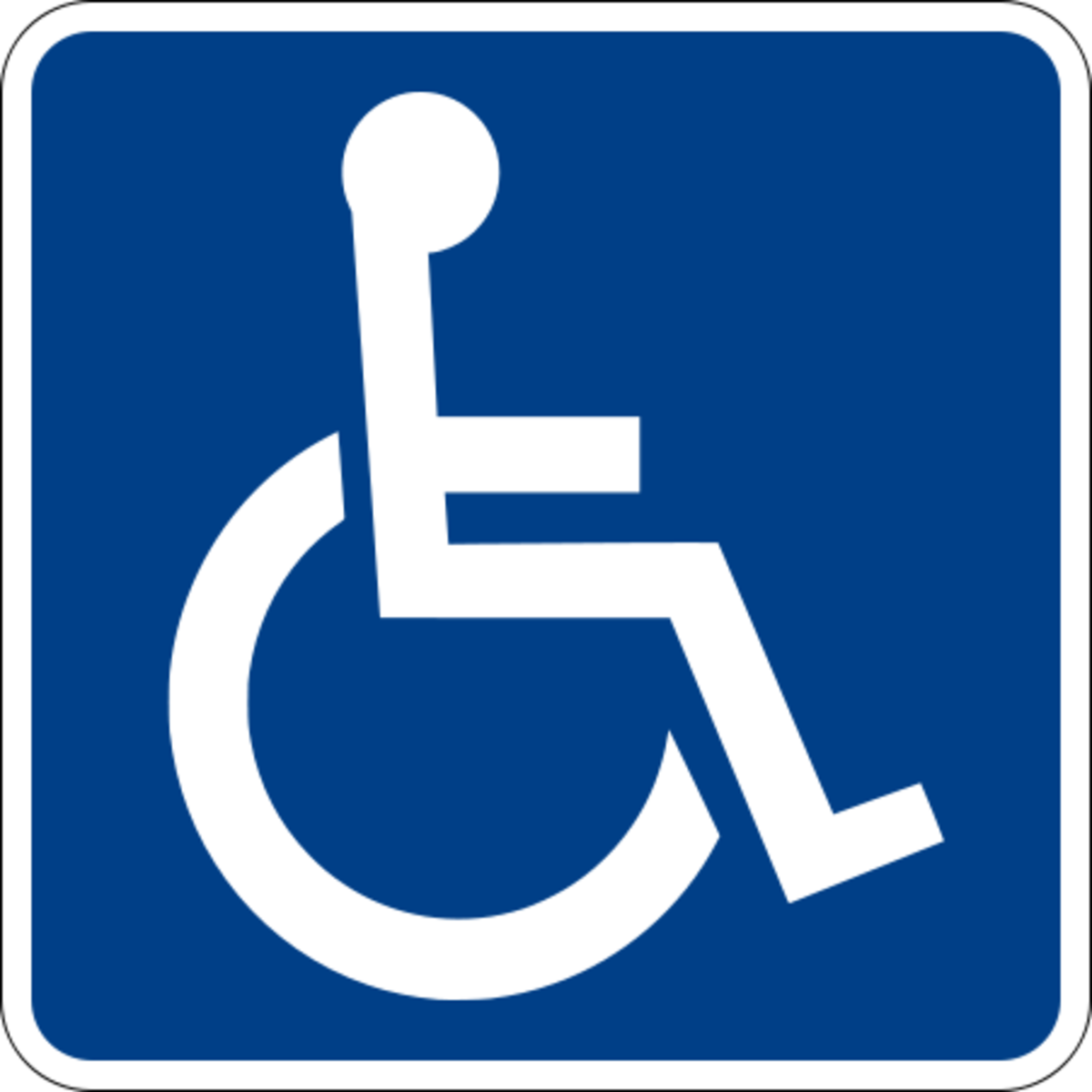Choosing the Right College for Students with Disabilities

Gearing up for the transition from high school to college can be a fun, exciting, and somewhat unsettling time in young person’s life. You are kicking off your education which will hopefully lead to a successful career path, preparing to leave old friends, and move out on your own for the first time. For students with disabilities, choosing the right college and preparing to transition out into the real world can come with an entire additional set of challenges and concerns. If you are a student with a disability, below is a list of considerations to think through to help make the right choice in a college that meets your academic, social, and physical needs.
Make a wish list
Start off by making a list of all the things you are looking for in a college. The best way to make sure that your wish list is all encompassing is to break it into 2 pieces:
1. What you are looking for in a college without your disability as part of the equation (i.e. programs of study you are interested in, size, location, cost, extracurricular activities, etc.) and
2. What you want in a college to accommodate your disability. Some things you will want to think about is physical accessibility (i.e. the ability to get to and from class, easily fit into classrooms if you use a wheelchair, easy walkability or on campus accessible transportation services, accessible housing and on campus dining, etc.) Only you know what “accessible” means for you, so if a campus boasts “a wheelchair accessible cafeteria” but getting trays or reaching the milk would be an everyday struggle, that will help you narrow down which campuses will be accommodate your abilities.
Start narrowing down your college options by starting with those items you listed under #1 then when you start researching more into the campus and taking campus visits, that is the perfect time to try to find as many items listed under #2.
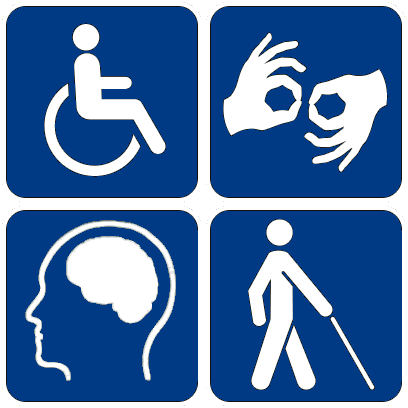
Look at the campus’ disability resource center
One of the most important aspects of your college search should include looking into different campus’ disability resource centers. Sometimes campus disability centers fall under counseling services. Often these services connect students with disabilities with an on-campus resource.
Ask if they keep your information confidential, what types of services they offer and what their hours are. That last question is especially important to find out what the campus’ policy is and services they have in place for students with disabilities who may need a resource or emergency contact after typical business hours.
Also, make sure to find out what you need to do to qualify for their services. Some campus disability centers require you to reapply for services each semester and may have other requirements like proof of disability or require that you visit so many times per semester.
A great disability service really can impact your next 2 or 4 years on campus. When doing campus visits, make sure this office is on your list. Stop by and get to know the people working there so you can feel what the vibe around their services is like.
Ask your Financial Aid Office about Vocational Rehabilitation resources
State Vocational Rehabilitation Agencies are available across the country to provide counseling, evaluation, job placement services, and even sometimes financial assistance to students and people with disabilities.
Sometimes the financial assistance you may qualify for through Voc Rehab can affect your Financial Aid award through your university. Learn about the pros and cons of claiming yourself as an independent or dependent for tax and financial aid purposes under your parents. Typically dependents will qualify for less financial aid, however there are often health insurance benefits of staying “dependent” on your parents. Weight your options and do the math to find out which option makes more financial sense for your next 4 years.
What's the Most Important Thing you are Looking for in a Future College?
Be open to different programs
Maybe you have always assumed you would go to a 4 year accredited college after high school, but don’t pigeon hole yourself into keeping an open mind into other options.
As you start researching and visiting campuses you may find that a 2 year technical program or starting off on a community college campus makes more sense financially and may offer better accommodations for your ability needs.
If traveling from class to class or living on campus does not seem feasible for you physically, consider an online course or even a class or two to cut down on the time you will need to spend getting yourself from place to place.
In college, you will need to find that balancing act between your time and energy to spend with friends, family, and school work. Sometimes going with a more convenient campus, online school, or shorter program might open a world of possibilities you didn’t consider before. Don’t rule out any options because of your disability.
Find out if there are other students with disabilities on campus
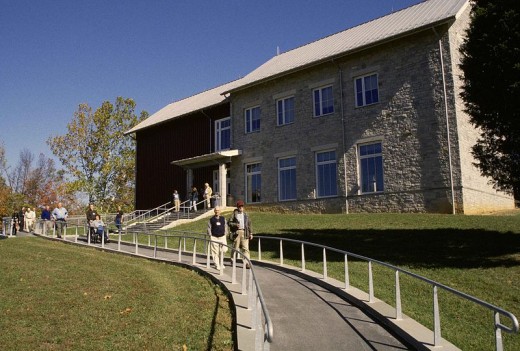
Finding out if there are other students with disabilities on campus is important for 3 reasons:
-
If there are other students with disabilities on campus, you will know that the college is a welcoming environment for student diversity.
-
You will know that you will have a good support group and social circle among other students with disabilities if you end up choosing that college.
-
It will tell you that the college probably has good things to offer in terms of accessibility and accommodations for students with various needs.
When going on college tours, ask your admissions counselor to arrange a visit with a student with a disability on campus. Often, admissions counselors will hook up potential students with current students so they can see what day to day life is like on campus. Meeting someone else who uses a wheelchair or has a similar disability to you will give you the insight into daily life at your potential new school.
Know your rights under the ADA
When planning for college, take some time to educate yourself about your rights according to the Americans with Disabilities Act.
-
Campuses must keep all information regarding your disability confidential.
-
Colleges cannot deny admission based on disability.
-
You are not obligated to tell any college about your disability.
-
Colleges must provide reasonable accommodations.
-
On campus housing must provide comparable, convenient housing to students with disabilities, too.
If you experience any violations of the above, know the avenues to file a complaint, get in touch with the admissions office to make them aware of what happened, write a letter to the editor of your local paper to bring awareness to the issue if the university does not take your concerns seriously and in extreme cases, consider consulting with a lawyer.
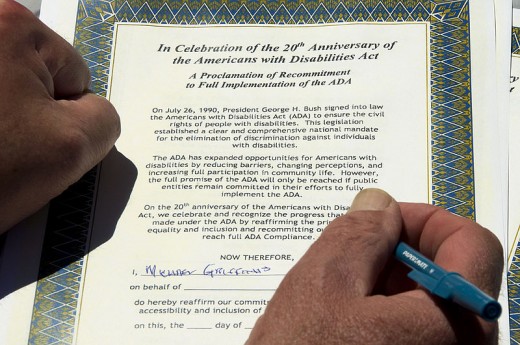
Don’t underestimate the power of becoming a self-advocate
Start now to build your skills and experience advocating for yourself. You will run into many, many more opportunities where you will need to pull these skills out and fight for your needs not only coming up in your college years but for years after.
Know your rights – you are already one step ahead by reading the tips above about your rights under the ADA! Whichever college you end up choosing, following some simply rules of thumb will ensure you are well on your way to a lifetime of self-advocacy and ensuring your needs are met:
Rule of Thumb #1: Know your resources. Know where to go on campus to have your voice heard – the school newspaper, a safe place to report violations or voice your concerns, and where you can go to have a listening ear when you have a hard day.
Rule of Thumb #2: Ask for what you need. Asking for help doesn’t mean you are any less capable. As you grow in life, you will find that asking for help is a sign of maturity and will help you learn collaboration skills that will be valued in your future workplace after college.
Rule of Thumb #3: Participate fully in campus life. The more opportunities you sign up for and take advantage of on campus, the more you will expand your social circle, make connections with professors and staff, and start building a foundation that can lead to more opportunities as you work towards graduation. Seize the day – make your own opportunities to advocate for a better future for yourself.
Are you a student with a disability trying to decide on your post-secondary education? What are some of the things on your list as you look for a college to fit your needs?
Are you a college student with a disability who went through some of the same concerns when looking for your school? Share what your experience was like and tips for future college students with disabilities in the comments.

